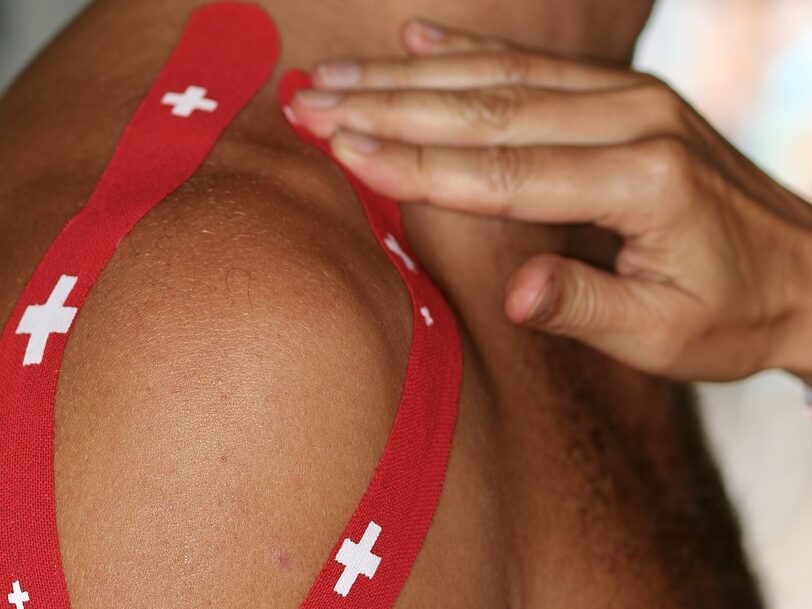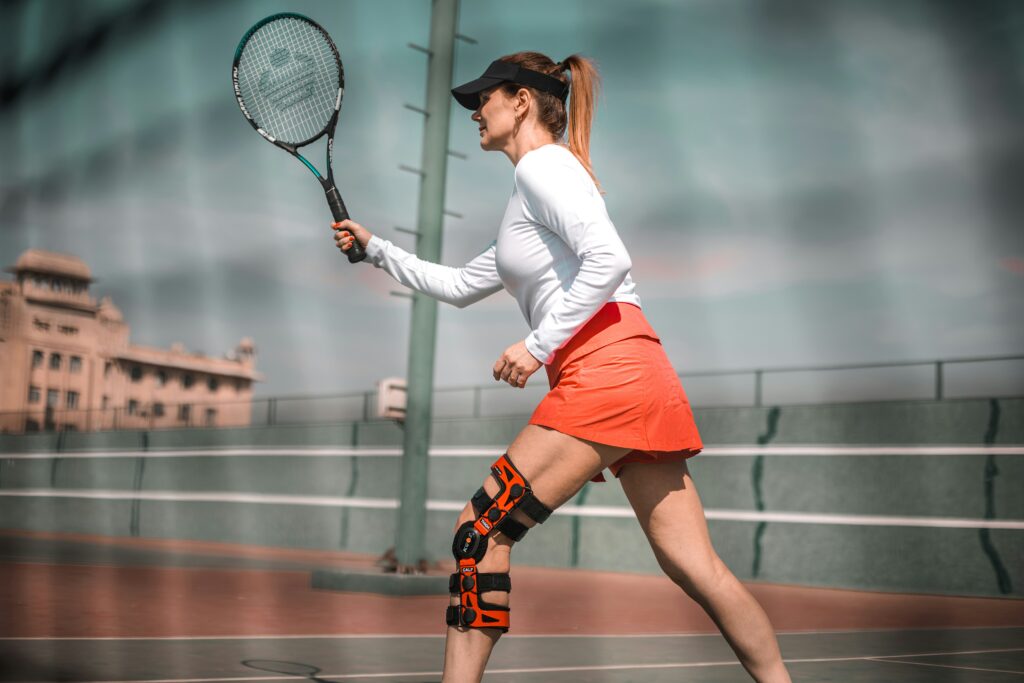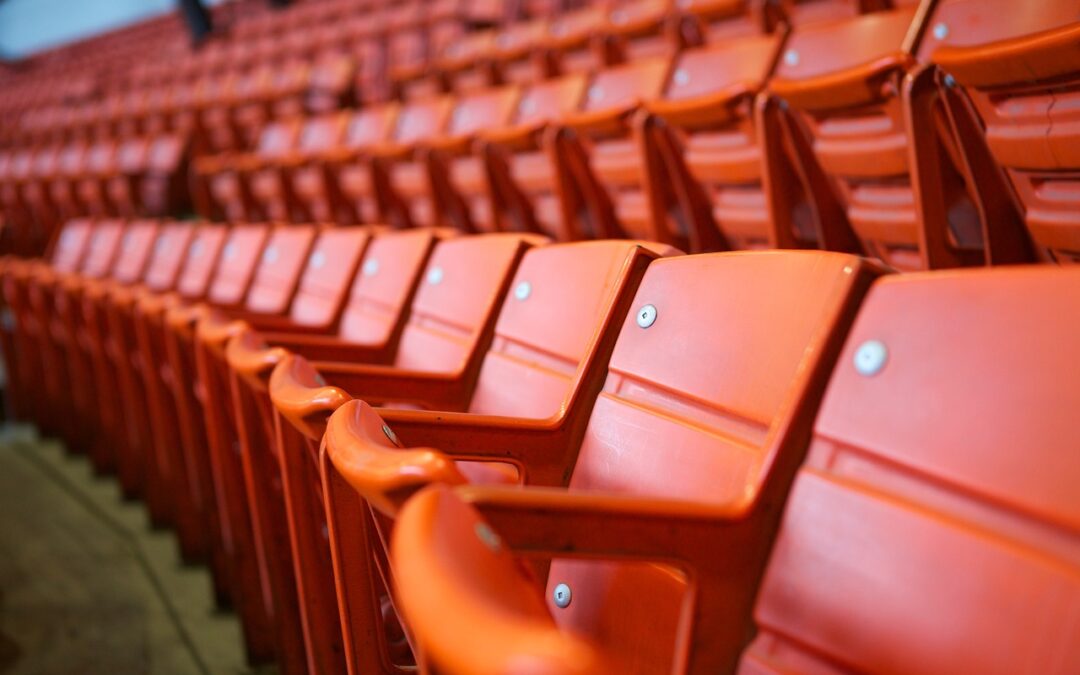The treatment room is only one part of the return from injury. Dr Carl Bescoby explains how he helps athletes heal their minds.

Injury doesn’t discriminate. Its threat hovers to some extent over all athletes, with the power to put careers on hold, strip away beloved hobbies, and endanger sporting futures. Rehab and recovery can be gruelling, time-consuming and painful – but at least when it’s over, you’ll be right back in action and better than ever. Right?
Sadly, that’s not always the case. The “unspoken” side of injury recovery, according to psychologist Dr Carl Bescoby, is its mental toll.
“The psychological challenges of recovery span from this sense of helping individuals move through fear, loss of identity, mental burnout to want to come back stronger, the sense of I need to be more resilient, I need to be better than I was when I return,” Dr Bescoby tells Sidelines. “The mind often heals a lot slower than the body.”
Dr Bescoby has worked with athletes ranging from professional footballers to skiers to weekend warriors, helping them overcome the psychological hurdles of recovery as they prepare to return to action. His work is perhaps less visible than a medic or physiotherapist, but it plays a crucial role in safe recovery. One example is helping athletes overcome their fear of re-injury. This is not just a mental barrier, but vital for a safe return.
“What we know from research and evidence is that fear of re-injury can lead to re-injury if it’s unsupported,” Dr Bescoby explains.
“If we’re under a higher level of stress, we’re more likely to increase our chances of experiencing injury, so if returning to activity is a stressor for an athlete then they’re going to also increase their chance of another injury.”
Given sports stars’ habit of taking to social media to build up hype around their returns, it might surprise fans to know there are nerves under their bravado. But Dr Bescoby says even elite athletes suffer from this fear, and sometimes rushing back can have unintended consequences. If athletes return when they are physically but not mentally ready, the stress could put them at risk of hurting themselves again.
“(My work) is just helping the brain to know and trust that the body can do what it’s being asked to do, so that’s just bridging the gap between what we know is physically okay to what we know is mentally okay.”
That can be achieved through strategies like imagery and graded exposure to triggering scenarios like putting their kit on or stepping back onto the pitch. Dr Bescoby helps athletes to live with their fear in a healthy way and overcome it.
“A lot of athletes feel if they’re fearful when they return, it means they’re not ready. I hear it all the time but it’s not true.
“It just means your brain is trying to protect you, and it’s doing its job too well because it’s probably trying to take you away from the place you’re trying to step back into.
“It’s just (about) realising this fear is okay, we can allow it to be there, but let’s find ways to manage it.”
Beyond fear, there are quieter and less obvious psychological impacts of injury. Athletes, particularly those with sport at the centre of their lives, have the rug pulled out from under them cruelly by injuries.
“if they’ve had an early specialisation in sport then their identity might be wrapped around just that one sport, so when it’s taken away it becomes quite unstable how they view themselves,” Dr Bescoby says.

“My focus is helping to understand what drives people’s commitment to sport, so really diving deeper into their values, their connection and finding meaning in what they used to do and then if we can pull out those values… we can learn to adapt those values into other areas of life.”
This helps athletes regain some balance in their lives while ruled out of action. However, there is also the issue of loss of confidence. Dr Bescoby explains that many athletes get their validation from training and performance and when that’s stripped away, confidence can be lost.
Dr Bescoby helps athletes counter that loss of confidence by re-establishing their strengths, and focusing on how they can move back towards their best performance but without the pressure.
“Part of it is managing the pressure of returning because there’s this rhetoric goes on across all sports that the comeback will be better than the setback, you return faster, stronger, better,” he says.
“I think fans and coaches all expect athletes to come back better than they were, not just where they were, so there’s a big sense of pressure that is put on a lot of athletes.”
Dr Bescoby feels this rhetoric, while intended to give athletes hope for their return, can be unhelpful.
“The reality of it is that some athletes don’t return to being better. Some don’t return at all following injury, so I don’t think that is a catch-all kind of phrase that supports a lot of athletes.
“It may be true for some but I do try and help when working with athletes to reframe the recovery and rehabilitation journey as an opportunity to grow in new ways.”
These conversations can lead to not only an emotionally smoother recovery, but a safer one too, with lower stress helping athletes reduce their risk of re-injuring themselves. However, Dr Bescoby believes the awareness of the importance of mental recovery needs to grow.
“I think athletes are starting to have a bit more awareness and understanding of that now… (but) I think there’s just a long way to go to influence all levels of the culture and environment across all sports, from coaches to support staff to everyone behind the scenes.”
You can find Dr Bescoby’s work here.
Sidelines Recommends

Too hot to handle? A closer look at heat training
It’s getting hot in here! Sidelines hears from expert Dr Steve Mears about why athletes use heat training and how to do it safely. Exercising in 40-degree heat sounds like punishment. For elite athletes, it’s preparation. From the 2020 Olympics in Tokyo to the…

Creating in chaos: the man behind the graphics at Sky Sports
Sky Sports is one of the UK’s breaking sports news powerhouses – but it’s not just the pundits on screen who make it happen. Each transfer and tribute needs visuals carefully curated, which is where Liam Harrison comes in. Graphic designer feels a small word for what…

How do sports keep fans safe?
Sport brings joy to millions and build unforgettable memories, so when tragedy strikes, it shatters entire communities. Sidelines looks into how organisers work to keep fans safe. These disasters have significantly impacted the safety and regulations in…




